Understanding the Metaverse: A New Horizon for Educational Technology
The term Metaverse has rapidly emerged as a buzzword across a multitude of sectors, but its integration into the realm of educational technology heralds a transformative era unlike anything we’ve seen before. While traditional e-learning environments have offered valuable resources for distant learning, the Metaverse promises to enhance the learning experience through an immersive, three-dimensional virtual space.
At the heart of this paradigm shift is the ability to create interactive, virtual classrooms that defy geographical limitations. As we delve deeper into the concepts behind the Metaverse, it becomes clear that this platform is more than just a new tool; it is a comprehensive ecosystem capable of bringing about a revolution in how knowledge is disseminated and received.
Enriching Student Engagement Through Virtual Immersion
The interactive potential of the Metaverse paves the way for unprecedented levels of student engagement. Learners can participate in engaging simulations, educational games, and collaborate virtually with peers from across the globe, all in real-time. Picture a history lesson taking place on the virtual reconstruction of historical landmarks or a biology class conducted within a replicated human cell.
The Potential Benefits of Metaverse-Enhanced Learning
In the evolving landscape of education, the metaverse holds the promise to transform traditional learning environments into immersive, interactive experiences. Metaverse-enhanced learning utilizes virtual reality (VR), augmented reality (AR), and other immersive technologies that can enrich the educational process. As we dive into the possibilities, it’s essential to understand the specific benefits such advancement might offer to educators and learners alike.
Immersive Interactivity and Engagement
One of the primary advantages of the metaverse in education is the level of interactivity and engagement it offers. The transition from passive learning, where students are merely recipients of information, towards an active learning approach can significantly enhance the educational experience. In a metaverse-enhanced environment, students are not just observing; they are participants, actively engaging in the lesson through interactive simulations and hands-on experiences.
Visual and experiential learners may find that the metaverse offers them a distinct advantage. Complex subjects can be made tangible through 3D visualizations, allowing students to explore, for instance, the inner workings of a cell or the vastness of the cosmos in ways that a textbook cannot match. Teachers might leverage this interactivity to orchestrate role-playing scenarios where students could re-enact historical events, conduct virtual science experiments, or even engage in dialogues with AI-powered historical figures. This high level of interactivity not only fosters a greater connection with the material but also has the potential to boost retention rates and turn abstract concepts into concrete understanding.
Accessibility and Customized Learning
Another benefit of metaverse-based education is its ability to transcend physical barriers. Learners from disparate geographical locations can congregate in a centralized virtual learning environment. Such a setting might include features like automated translation, enabling real-time collaboration across language barriers. Students with physical disabilities can also participate on equal footing, gaining access to experiences and locations that might otherwise be inaccessible to them.
Furthermore, the metaverse can provide customized learning experiences for each student. AI-driven algorithms can adapt instructional material to match individual learning paces, styles, and interests. A student struggling with calculus, for instance, could receive additional practice problems tailored to their specific areas of difficulty, while a student excelling in literature might be presented with advanced texts to analyze. As a result, education becomes not only more inclusive but more tailored to each learner’s unique needs.
Creative Expression and Collaboration
Creative expression is a crucial aspect of learning, and the metaverse creates a boundary-less platform for students to express their thoughts and ideas. Students can design and create virtual environments, artworks, or complex structures, leading to an enhanced sense of achievement. Moreover, these creative tasks can be collaborative, with students from various backgrounds contributing their unique viewpoints to a collective project. Such teamwork can nurture communication skills, cultural understanding, and the ability to work seamlessly in group settings.
The collaborative aspect of the metaverse can also benefit students as they prepare for their future careers. The ability to operate and cooperate in a digital space is an increasingly valuable skill in a globalized workforce. Through metaverse-based projects and teamwork, students develop the digital literacy and remote collaboration skills that are highly sought after in many modern industries.
In the realm of metaverse-enhanced learning, students are not just acquiring knowledge; they are also honing the 21st-century competencies that will be essential in the workforce of the future. Whether it’s through individual projects or collaborative efforts, creativity and innovation are not only encouraged but necessary components of metaverse learning platforms.
Metaverse-enhanced learning represents a monumental shift in the educational paradigm, offering a plethora of opportunities for enriching and expanding the ways in which we learn. The potential benefits—spanning immersive interactivity, accessibility, customization, and creative expression—indicate a future where such technology-facilitated learning is integral to education. As this field continues to develop, it is clear that the metaverse could become a cornerstone of lifelong learning, forever altering the landscape of education for future generations.
Case Studies: Successful Metaverse Implementations in Education
The advent of the metaverse has offered a revolutionary dimension to educational methodologies, amplifying traditional learning experiences with immersive environments that engage students in unparalleled ways. Various educational institutions have begun incorporating metaverse technology, reaping significant educational outcomes. Here, we delve into several case studies where the metaverse has been successfully implemented in the realm of education, showcasing the practical applications and benefits of this growing technological frontier.
Enhancing Student Engagement through Immersive Learning
In the metaverse, engagement is not just about attention—it’s about participation and experience. One particular institution demonstrated remarkable success by constructing a virtual campus where students could interact with educational material in a three-dimensional space. This approach facilitated a deeper understanding of subjects such as geometry and physics through interactive simulations. Noteworthy was the unprecedented increase in student attendance, a testament to the compelling nature of metaverse environments in fostering educational involvement.
Fostering Collaboration in Virtual Spaces
Collaboration is a cornerstone of effective learning, and the metaverse offers expansive opportunities for students to work together, regardless of physical distance. A prominent university pioneered a project in which students from different countries could collectively participate in an online archaeological dig. Through this metaverse experience, they gained practical skills in a team setting, which proved invaluable in understanding global collaboration. The program recorded a significant boost in cross-cultural communication and teamwork, skills essential for the global economy.
Real-World Skill Application via Virtual Reality
The necessity for practical application of knowledge is paramount in modern education. The metaverse excels at blending theoretical teaching with real-world application. A case in point involved a partnership between a technical institute and a metaverse platform, where students designed and tested virtual prototypes of engineering projects. This hands-on approach allowed for instant feedback and iteration, which honed students’ problem-solving and critical thinking abilities. The success was evident as a high percentage of participants demonstrated advanced competencies in their engineering design projects.
Addressing the Challenges: Ethical and Practical Considerations in the Metaverse
As we step foot into the realm of the Metaverse—a sprawling virtual universe rapidly expanding its horizons—we are faced with a bevy of new challenges that test our moral compass and practical agility. The Metaverse promises an immersive experience that transcends the physical world, but it does not come without its ethical and practical quandaries. Here, we will explore the complexities that arise as this digital frontier unfolds before us, delving deep into the ethical conundrums and practical challenges it presents.
Ethical Issues in the Metaverse
When entering the Metaverse, individuals are often presented with scenarios that test their ethical boundaries. From issues concerning digital identity to content censorship, the ethical landscape of the Metaverse is a minefield waiting to be navigated. One significant ethical issue is the representation of oneself through avatars. How much of one’s identity should be mirrored in these digital personas? Should there be a limit to the freedoms of expression in the Metaverse, or would that infringe on fundamental rights? Privacy is another ethical concern, with users’ data being a temptingly lucrative asset for corporations. This raises the question: to what extent should user data be harvested, and who possesses the right to this virtual goldmine?
As the virtual world of the Metaverse continues to evolve, so do concerns related to behavior within this space. Harassment and bullying have manifested in new, troubling ways that require a fresh look at community guidelines and governance. Furthermore, the potentially addictive nature of these immersive environments calls for careful scrutiny. Creating mechanisms for accountability without stifling the innovative essence that makes the Metaverse appealing is a delicate balance to achieve. It’s this balance that will become a cornerstone for the ethical development of the Metaverse.
Practical Challenges in the Metaverse
The practical aspects of the Metaverse are as critical as the ethical ones. These include technological infrastructure, accessibility, interoperability between different virtual spaces, and the digital divide. Technological infrastructure requires substantial investment to ensure seamless and immersive experiences for users. Latency issues, compatibility with a variety of devices, and user interface designs are just a few of the practical challenges that need to be addressed.
Moreover, accessibility remains a concern—how do we ensure that the Metaverse is an inclusive space for all, regardless of socioeconomic status or disabilities? The digital divide could be broadened as those with limited access to technology find themselves outsiders to a world that is increasingly shifting online. It is vital to consider the development of affordable and accessible devices, along with user-friendly platforms that cater to diverse populations.
Interoperability is another practical hurdle; users desire a Metaverse where they can transport digital assets and identities across boundaries effortlessly. The need for standardization in the Metaverse can be likened to creating a common language in a world filled with diverse dialects. Without universal protocols, the Metaverse risks becoming a fragmented space, defeating its purpose of a unified digital universe.
Combating Challenges with Technology and Policy
To confront these challenges, a synergy between innovative technology and comprehensive policy is paramount. Advanced technology can aid in creating secure and transparent systems that uphold both privacy and freedom of expression. Blockchain, for example, can play a pivotal role in authentication and validating transactions without compromising personal data. Artificial intelligence (AI) could monitor and enforce community standards, although the ethical implications of such surveillance merit thoughtful debate.
Policy development is equally crucial. Regulating the Metaverse will require a nuanced understanding of virtual communities and the unique challenges they present. Policymakers will need to collaborate with technologists, ethicists, and users to craft legislation that protects individuals while fostering the growth of this expansive digital ecosystem. Thoughtful policy could bridge the gap between technological advancement and ethical standards—a feat that would cement the foundations of the Metaverse for years to come.
In conclusion, both the ethical and practical challenges in the Metaverse are deeply interwoven, demanding a holistic approach to propose solutions that are fair, inclusive, and forward-thinking. As we venture further into this digital realm, it is imperative that we do so with a cautious yet optimistic eye, ensuring that the journey ahead benefits all who dare to navigate the Metaverse.
The Future of Learning: How the Metaverse Could Reshape Education
The metaverse—an intricate web of virtual worlds that are all interconnected—represents a bold new frontier for every realm it touches, and education stands among the sectors it might most dramatically transform. As a convergence of physical, augmented, and virtual reality in a shared online space, it promises to revolutionize how knowledge is acquired, processed, and delivered. Through immersive learning experiences, the metaverse caters to different learning styles and enables real-time collaboration from geographically dispersed participants.
Immersive Learning Environments
The traditional classroom is evolving into an expansive, interactive environment within the metaverse. Here, students don’t just listen to lectures; they participate in the creation and exploration of digital landscapes. Think history lessons taking place on a virtual battlefield, or physics classes conducted in a simulated space station—possibilities for engagement are as limitless as the imagination.
- Enhanced Engagement: Interactive simulations and gamified learning boost student motivation and participation.
- Individualized Learning: Adaptive learning environments cater to personal interests and pacing, offering a more tailored educational experience.
- Accessibility: Remote access to high-quality education resources helps bridge the gap between diverse socioeconomic backgrounds.
Collaborative Opportunities Across Borders
One of the most transformative aspects of the metaverse is its capacity to connect learners across the globe. It facilitates a level of interaction and cooperation that transcends physical limitations, allowing for international groups to work together on projects, share perspectives, and develop a global understanding that is invaluable in our interconnected world.
The Challenges of Integrating the Metaverse in Education
While the potential is vast, the integration of the metaverse into educational settings is not without its challenges. Concerns around equitable access to the necessary technology, ensuring the safety and security of users, and providing educators with the skills to effectively teach in these new environments are significant hurdles that need to be addressed for the metaverse to fulfill its potential as a transformative educational tool.
- Technology Access: Equipping schools and students with the hardware and bandwidth needed to access the metaverse is a significant obstacle, particularly in less affluent areas.
- Digital Literacy: Both educators and students must possess the digital skills required to navigate and leverage the metaverse for learning effectively.
- Privacy and Security: Protecting user data and ensuring a safe environment for all participants is paramount as education systems adopt more digital platforms.

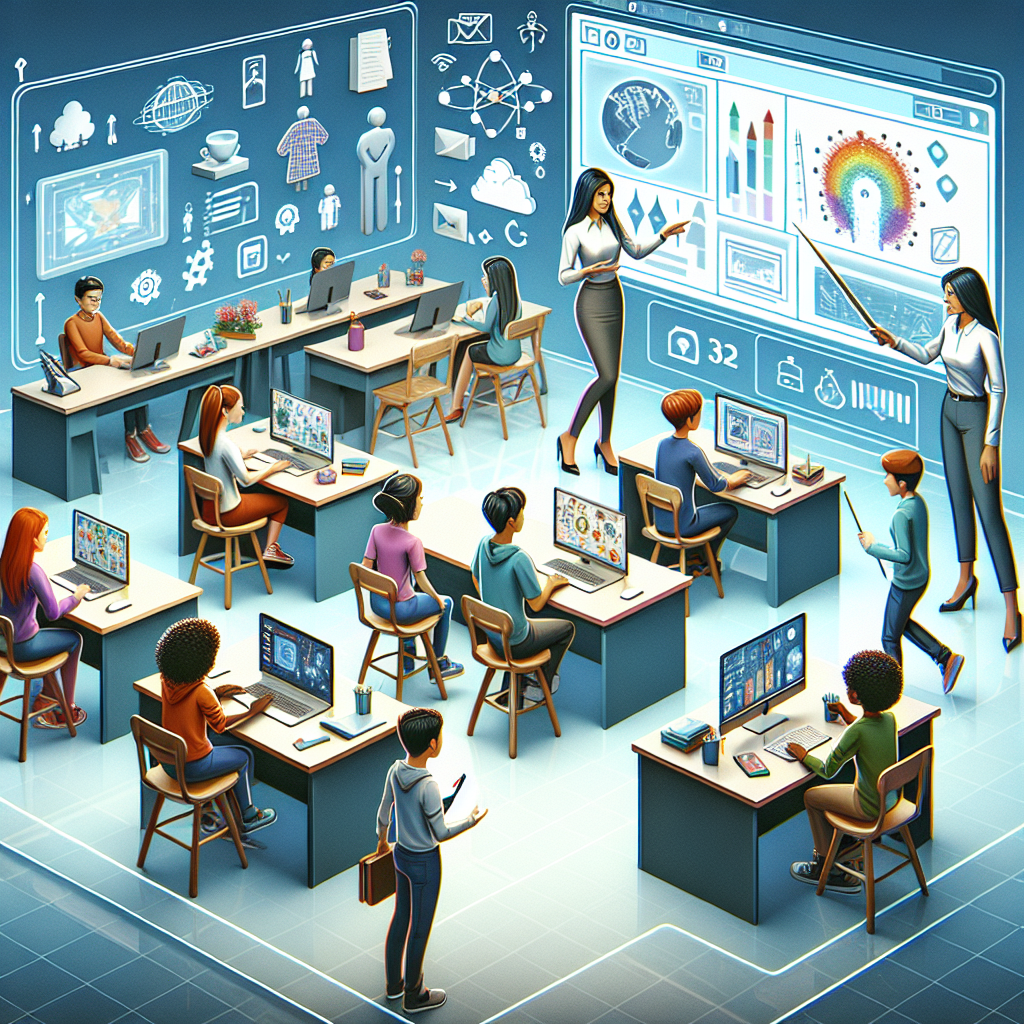
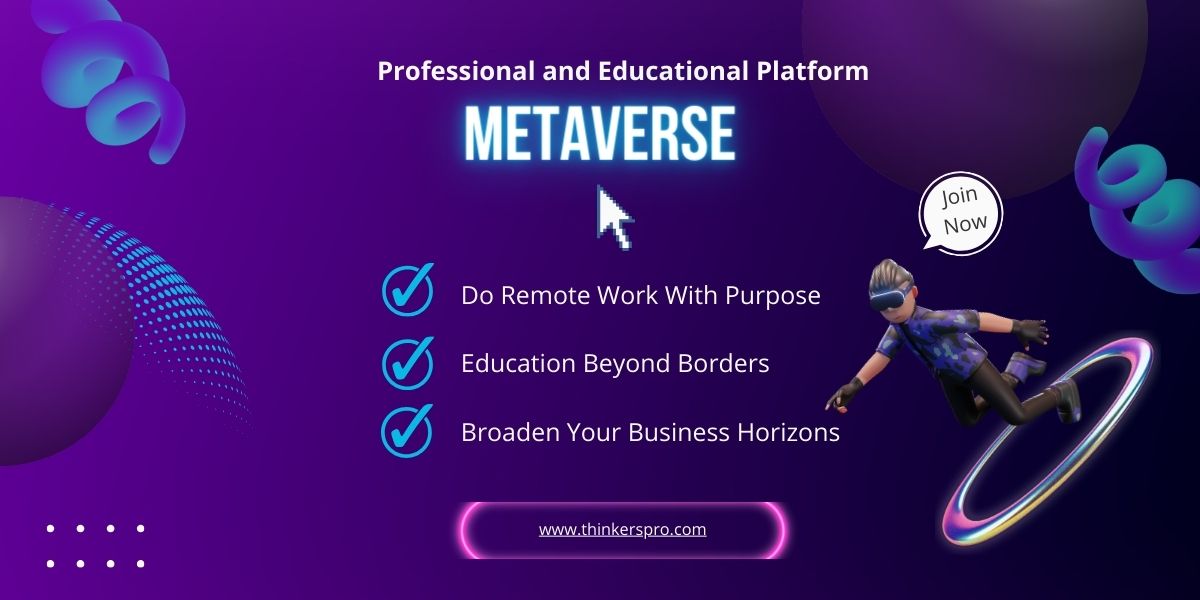
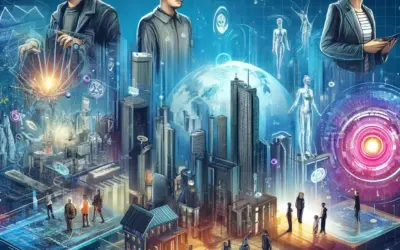


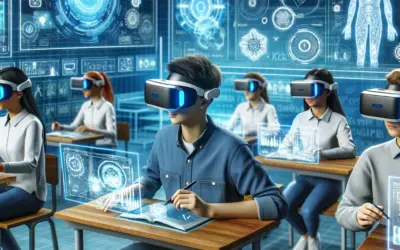

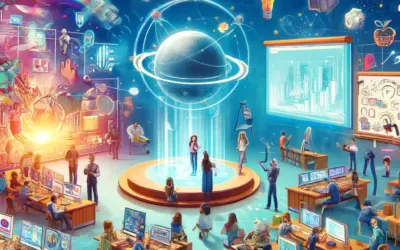
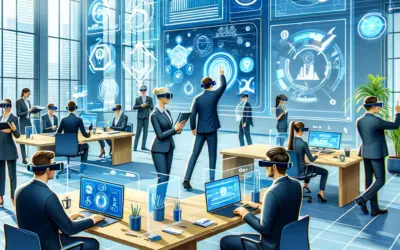



0 comentarios